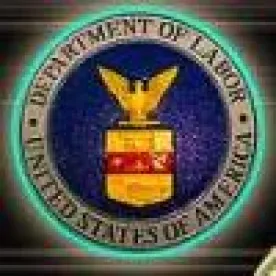On September 19, the U.S. Department of Labor (DOL) announced that it will repropose its pending regulation that would amend the definition of what constitutes "investment advice" for purposes of creating fiduciary status under ERISA, rather than proceeding directly to a final regulation. In doing so, DOL is acceding to requests from many interested parties and members of Congress. DOL expects to publish the reproposal in early 2012.
DOL's original proposal, published in October 2010, proved to be very controversial. Its provisions would broaden the scope of who is treated as a fiduciary under ERISA by reason of providing "investment advice." This expansion would be accomplished by eliminating certain factors in the current five-factor test, and making fiduciary status almost automatic for certain types of entities, such as SEC-registered investment advisers, once they give investment recommendations. It also would extend fiduciary status to appraisers of plan assets. While the proposal included several exceptions, there were concerns that these exceptions were too limited to counteract the broad scope of the expanded definition.
The proposal generated several hundred comments, many raising significant concerns about the changes to the existing regulation. This led DOL to hold a hearing on the proposal—a step generally reserved for controversial regulatory actions—this past March, which extended over two days, at which DOL received testimony from parties representing various points of view on whether the proposal should go forward and in what form. At that time, many said that if DOL intends to proceed, it should first repropose the rule, as they saw a need for substantial changes that they believed should be recirculated for further comment before proceeding to a final rule. They also said that DOL should revisit its economic analysis of the costs of the proposed changes to correct certain flaws and omissions. Several comments making the same request came from members of Congress, and the call for reproposal was reiterated by witnesses and members of Congress alike at a House subcommittee hearing on the proposed regulation that was held this past July.
DOL indicated that its decision to repropose the rule "is designed to inform judgments, ensure an open exchange of views and protect consumers while avoiding unjustified costs and burdens," and also is in part in response to requests from the public, including members of Congress, that it allow an opportunity for more input and greater research.
In its news release making this announcement, DOL highlighted several points, which provide some insights into how it intends to proceed:
- IRAs. DOL says it intends to "take the time to get this right to ensure that we provide the strongest possible protections to business owners and retirement savers in plans and IRAs." The reference to IRAs suggests that, despite calls for DOL not to apply the new rule to IRAs due to differences in how services are provided in the IRA market, at this time DOL is still planning to cover IRAs under this rule.
- Economic Analysis. DOL said that a purpose of the extended rulemaking process is to ensure that the public receives a full opportunity to review DOL's updated economic analysis and revisions of the rule. The economic analysis issue had been highlighted in many comments, and received further attention following the recent defeat of a controversial Securities and Exchange Commission (SEC) rule on the basis of an inadequate economic analysis. It is evident that DOL is taking this issue seriously.
- Coordination with Other Agencies and Dodd-Frank Act Rules. DOL will "continue to coordinate closely with the Securities and Exchange Commission and the Commodities Futures Trading Commission to ensure that this effort is harmonized with other ongoing rulemakings." This responds to a concern raised by the financial services industry as to whether, in light of ongoing rulemaking by these agencies to implement the Dodd-Frank Act, DOL changes would lead to inconsistent standards for firms providing financial services to ERISA plans and IRAs. (Of particular concern is a Dodd-Frank Act mandate for the SEC to develop a fiduciary standard for broker-dealers.) The extended time period should give the agencies a better chance to coordinate their efforts, and another opportunity for financial services firms to review whether DOL's changes would affect their new responsibilities under the still-developing Dodd-Frank Act rules.
- Revisiting the Scope of the Rule. DOL said it anticipates revising the provisions of its proposal to do three things: (1) Clarify that fiduciary advice is limited to "individualized advice directed to specific parties," (2) respond to concerns about the application of the rule to routine appraisals, and (3) clarify the limits of the rule's application to arm's-length commercial transactions, such as swaps. This signals that the DOL reproposal may address many of the concerns raised by the appraisal and financial services industries. These concerns include (a) the proposal's treatment of certain persons, in particular registered investment advisers, as investment advice fiduciaries without regard to whether the advice they provide is individualized to the particular plan or plan participant, and (b) the proposal's "seller's exception" being too limited to effectively protect sellers in routine transactions from becoming ERISA fiduciaries. The fact that the rule is being reproposed will give interested parties the opportunity to comment further on whether and to what extent their concerns have been addressed.
- Prohibited Transaction Exemptions. DOL anticipates issuing exemptions that will address concerns about the impact of the regulation on current fee practices of brokers and advisers, as well as clarifying the continued application of current exemptions to allow brokers to receive commissions on their sales of mutual funds, stocks, and insurance products. DOL indicated its objective of crafting the new and amended exemptions to strike a balance that best preserves current "beneficial" fee practices, while at the same time protecting plan participants and IRA owners from "abusive practices and conflicted advice." This statement is consistent with DOL's prior indications about its intent to use the exemption process.
Commentators had requested that DOL aim to have the exemptions in place by the time a final rule is published, but DOL did not comment on the timing. In a statement to reporters, DOL officials said that they are planning to release the proposed exemptions at the same time that the regulation is reproposed.
The open question is how effectively, and to what extent, the reproposal will address the significant concerns raised by the comments, including how flexible the terms and conditions will be in any new or amended exemptions designed to address those concerns, and whether IRAs will be treated differently from ERISA-covered plans. The regulatory process also could be affected by the fact that 2012 is an election year, which can often result in delays of controversial regulations.
We have been actively involved in this issue for several clients, with one of our partners, Donald J. Myers, testifying in favor of reproposal at the July 2011 House subcommittee hearing. We will continue to stay involved, and look forward to further updating our clients once DOL has issued the reproposed regulation.



 />i
/>i

